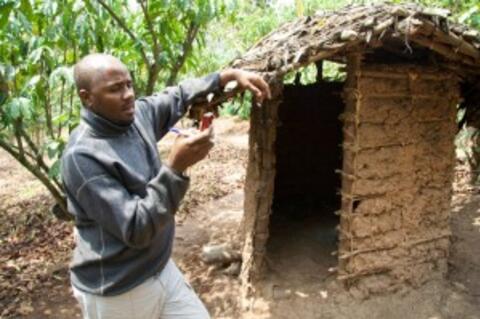CommCare – Community Health Mobile Platform

According to the organisers, CHWs and HBCPs are typically in the best position to promote preventive care and convey important health information, and are often the only health workers with sufficient time to get to know the patient and understand their challenges. HBCPs can encourage prompt care-seeking behaviour, and detect and refer those at risk for TB, malaria, and other important diseases related to HIV. HBCPs also have the potential to collect information that is needed at the national level about disease burden and barriers to adopting necessary health practices. However, these health workers often receive relatively little medical training, have high turnover, and have limited opportunities to reinforce their knowledge once they begin working in the field. They typically lack effective tools required to maintain the longitudinal records required to provide truly effective care. Furthermore, while living in the communities they serve is the key to the effectiveness of HBCPs, it also makes community health programmes extremely difficult to organise and manage.
CommCare is supporting community health programmes in Tanzania in a variety of ways. For example, CHWs are encouraged to visit every woman who gives birth as soon as possible after delivery. CommCare guides the CHW through a questionnaire to collect data on the birth and the condition of the infant to assess the infant and mother for key danger signs. In addition to sending the data back to a central repository to assist with vital registration, the system also guides the CHW to refer an infant or mother in need of medical attention, thus addressing one of the key barriers to reducing neonatal mortality.
According to the organisers, CommCare has a wide range of functions, some of which are still in the development phase:
- Household visit tracking: The HBCP will record every household visit in CommCare, which will be relayed back to a central server over the cellular network. This information can help a HBCP ensure they visit each household frequently enough, as well as provide HBCP supervisors with key information about the activity of their HBCPs.
- Household visit support and data collection: CommCare will present a checklist of activities to the HBCP for each visit, as well as collect data, such as information about any births or deaths since the previous visit. The content of the checklist and questions will be easily customisable to meet the needs of each programme.
- Follow-ups: Many household visits result in the HBCP advising their clients to do something or go somewhere, such as to go to a clinic for testing or treatment. During a visit, the HBCP will record their recommendations in CommCare. At the next visit, CommCare will prompt the HBCP to follow up, i.e. to see if the person did indeed go to the clinic for testing.
- Record keeping: CommCare will maintain household house records (i.e. number of mosquito nets, presence of pit latrine, etc), as well as information about each member of the household.
- Health protocols: CommCare will guide a HBCP step-by-step through relevant health protocols, such as TB and malaria screenings, and refer people to appropriate clinics or testing.
- Day planning: CommCare will help a HBCP plan their day. For example, if a member of a household is referred for a TB test, CommCare can direct the HBCP to follow up on that household after 1 week.
- Data exploration: HBCPs will also be able to use CommCare to explore trends in their activity, and compare data on their clients and activities to those of other HBCPs in the country.
The project’s objective is to have 1,400 CHWs using CommCare by 2014, covering a population of about 1 million people in Tanzania. They work with existing community health programmes as well as with local partners to train and deploy new cadres of CHWs.
New Technology, Health, HIV/AIDS
CommCare is built on top of the open source JavaROSA platform.
Dimagi is a privately held software consultancy founded in 2002 whose mission is to integrate innovative technology into global public and private services in order to improve human health and wellbeing. D-Tree International is committed to assisting health care workers improve their services while supporting better planning and management of scarce health resources.
Dimagi, Inc., D-Tree International, Pathfinder International
Dimagi website and D-tree International website on July 16 2010.
Comments

EXCELLENT
gave me the need i am looking for at this time.
teresa
mabuhay clinic
modragon, philippines

Commercial business to whose advantage
This leaves e with more questions than answers.
Is this then a commercial product by the long list of members involved I would imagine it is...
who will collect the data and where will it be held. Is this an infringement?
Will local people understand their personal data is being kept and will they be told what it will be used for in teh future?
So many questions regarding this equipement that can so easily be misused in such vulnerable societies.
- Log in to post comments
